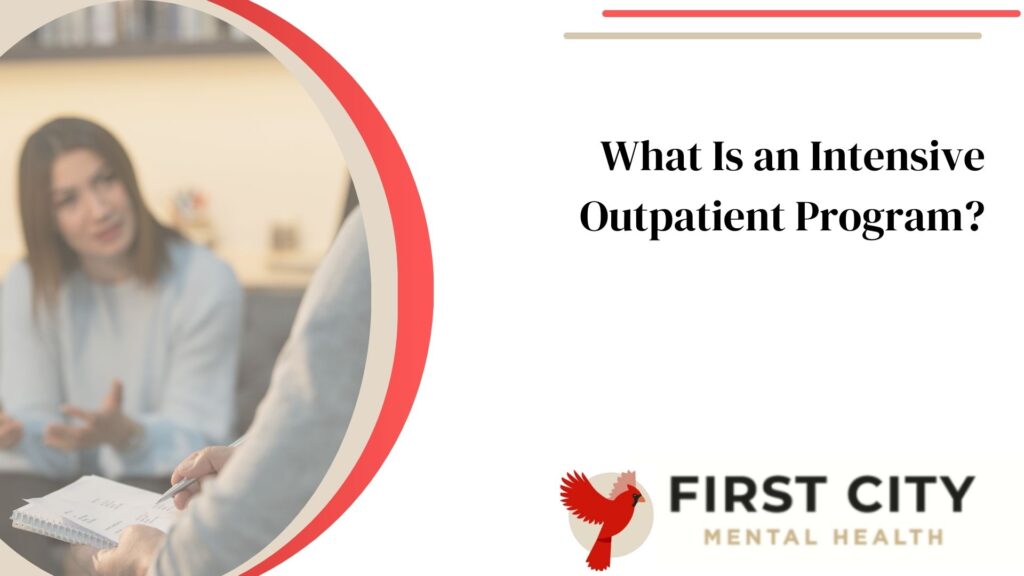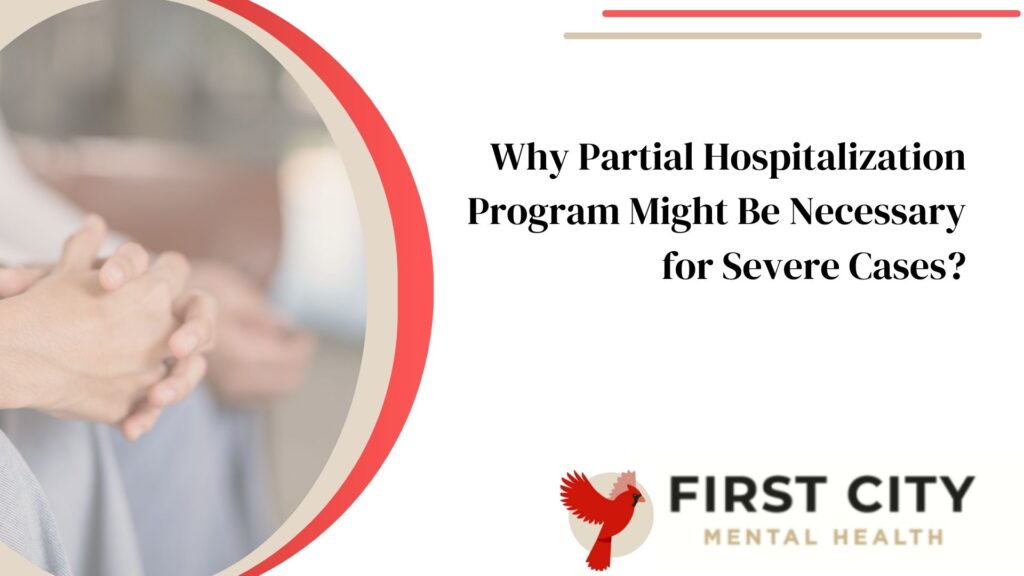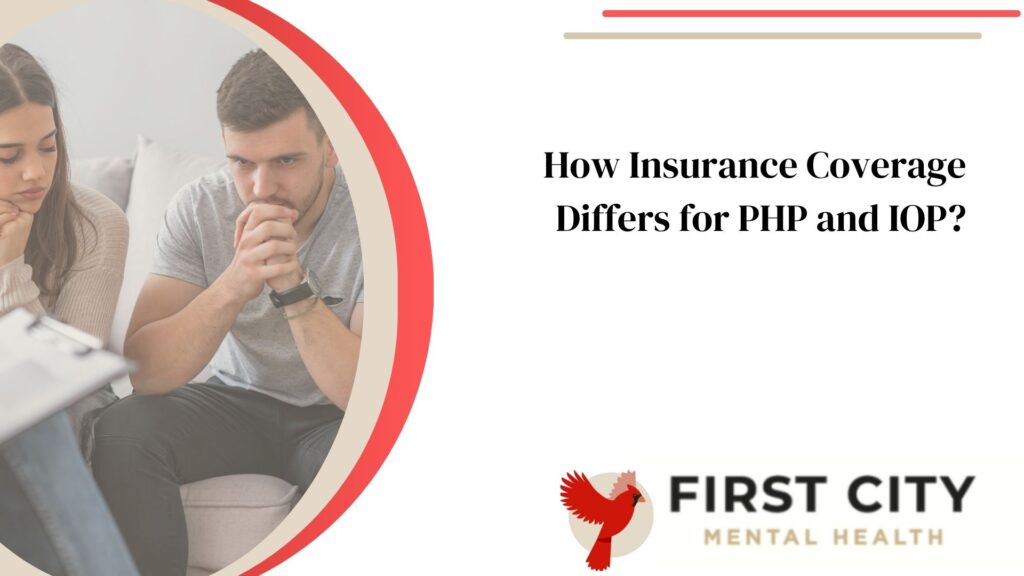
Where to Look for Quality Partial Hospitalization Programs?
January 27, 2025
How to Enroll in a Mental Health Partial Hospitalization Program in Kokomo?
January 27, 2025For individuals struggling with mental health issues, choosing the right treatment program can be overwhelming. Many wonder about the differences between a Partial Hospitalization Program (PHP) and an Intensive Outpatient Program (IOP).
Both offer Support, but understanding their unique features is crucial for making an informed decision.
Mental Health Partial Hospitalization typically lasts 30-45 days and is a step between residential care and outpatient treatment. It provides intensive care for patients who have completed a residential program and are ready to reintegrate into society.
This blog post will explore the key differences between PHP and IOP, helping you determine which option might be best for your needs. Let’s explore these two essential treatment options.
Key Takeaways
- Partial Hospitalization Programs (PHP) offer 6-8 hours of daily treatment 5-7 days a week, while Intensive Outpatient Programs (IOP) provide 3-4 hours of care for 3-5 days weekly.
- PHP typically lasts 30-45 days and is more intensive, serving as a step between residential care and outpatient treatment. IOP usually runs for 8-12 weeks, allowing patients to maintain daily routines.
- PHP includes daily individual therapy, frequent group sessions, and regular medical monitoring. IOP focuses mainly on group therapy with less frequent individual sessions and minimal medical Supervision.
Why Choose a Partial Hospitalization Program Over IOP?
Partial Hospitalization Program Kokomo (PHP) offers more intensive care than Intensive Outpatient Programs (IOP). PHP provides structured Support for individuals who need comprehensive treatment but don’t require 24-hour Supervision.
This program typically involves 6-8 hours of daily therapeutic activities, including individual therapy, group sessions, and medication management. PHP is ideal for patients who have completed residential treatment and are ready to reintegrate into society.
Choosing PHP over IOP can be beneficial for those with severe mental health concerns requiring close monitoring. The program’s intensive nature allows for rapid stabilization and skill development.
Patients in PHP receive more frequent contact with mental health professionals, enabling better symptom management and progress tracking. The structured environment of PHP supports individuals in developing coping strategies and life skills crucial for daily functioning.
What Is an Intensive Outpatient Program?

Intensive Outpatient Programs (IOP) provide a structured treatment approach for individuals managing mental health issues while maintaining their daily routines. These programs offer a step down from residential or mental health partial hospitalization program, allowing patients to receive care while living at home.
IOP typically includes group therapy, individual therapy, and medication management, focusing on stabilizing mental health and promoting independent living. The therapeutic programming usually spans 3-5 hours daily, incorporating various support methods to help patients cope with their conditions.
IOP aims to equip individuals with the tools necessary to manage their mental illness effectively. Patients participate in life skills reintegration and independent living skills training, facilitating a smooth transition back into their daily lives.
This flexible treatment schedule enables participants to continue working, attending school, or managing other responsibilities while receiving crucial Support and care. The program’s structure allows for personalized attention to each patient’s needs, fostering a supportive environment for recovery and growth.
Intensive Outpatient Programs bridge the gap between full-time care and independent living, providing essential Support for those on their mental health journey.
How Does PHP Differ from IOP in Structure?
Partial Hospitalization Program mental health (PHP) and Intensive Outpatient Programs (IOP) differ significantly in their structure and intensity of care. PHPs offer a more comprehensive treatment approach compared to IOPs.
PHPs provide more intensive care. Patients receive individual therapy and group therapy sessions multiple times daily. PHPs offer extensive life skills reintegration training, and medical monitoring happens regularly. IOPs provide less intensive care. Group therapy forms the primary treatment modality in IOPs, and individual therapy occurs less frequently. Life skills training is limited in IOPs, and Medical Supervision is minimal in IOPs.
Why Partial Hospitalization Program Might Be Necessary for Severe Cases?

Building on the structural differences between PHP and IOP, it’s crucial to understand the specific scenarios where a Partial Hospitalization Program (PHP) becomes essential. Severe mental health cases often require more intensive treatment than traditional outpatient care can provide.
PHP is a vital step-down option from residential care, offering a bridge for patients transitioning back to daily life.
For individuals grappling with acute mental health symptoms, PHP provides comprehensive Support. The program incorporates group therapy, individual therapy, and medication management to stabilize mental health and foster independent living skills.
Adult patients benefit from the structured environment of a PHP, which allows them to receive intensive treatment while still returning home each evening. This approach helps maintain connections with family and community, crucial factors in long-term recovery and symptom management.
Why Is the Intensive Outpatient Program Suitable for Less Severe Conditions?
Moving from severe cases to less intense situations, Intensive Outpatient Programs (IOP) offer a suitable alternative for individuals with milder mental health concerns. IOPs provide a higher level of care than standard outpatient services while allowing patients to maintain their daily routines.
This program typically involves 6-8 hours of therapeutic programming per day, including individual and group therapy sessions, medication management, and life skills reintegration.
IOPs are designed to help people stabilize their mental health and gradually return to independent living and functioning. Patients can live at home while receiving treatment, offering flexibility and independence.
This approach is particularly beneficial for those who need more intensive care than outpatient services but do not require the round-the-clock Supervision provided in Indiana partial hospitalization programs.
The treatment team works closely with each patient to develop personalized treatment goals and adjust the program’s intensity based on individual needs.
What are the treatment modalities used in PHP vs IOP?
Treatment modalities in Partial Hospitalization Programs (PHP) and Intensive Outpatient Programs (IOP) differ in intensity and structure. PHP offers a more comprehensive approach, while IOP provides targeted Support for specific needs.
PHP Treatment ModalitiesIOP Treatment Modalities
Group therapy (6-8 hours daily) Group therapy (3-4 hours, 3-5 days/week)
Individual therapy sessions Individual therapy sessions (less frequent)
Medication management Medication management (as needed)
Psychoeducational groups Psychoeducational groups (less intensive)
Skills training Skills training (focused on specific needs)
Family therapy Family therapy (optional)
Experiential therapies Limited experiential therapies
Intensive care for post-residential patients Support for less severe conditions
PHP provides a structured environment for patients transitioning from residential care. The program includes 6-8 hours of daily therapeutic programming. Patients live in sober housing off-site during treatment. IOP offers a less intensive option for individuals with milder symptoms or those stepping down from PHP.
What Are the Typical Durations of Partial Hospitalization Program and Intensive Outpatient Program?
Adult Partial Hospitalization Programs (PHP) and Intensive Outpatient Programs (IOP) differ in their typical durations, reflecting the varying levels of care they provide.
Program TypeTypical DurationTreatment Intensity
Partial Hospitalization Program (PHP) 30-45 days, 6-8 hours per day, 5-7 days per week
Intensive Outpatient Program (I.O.P.) 8-12 weeks, 3-4 hours per day, 3-5 days per week
Mental Health Partial Hospitalization (MH PHP) spans 30-45 days. PHP operates daily, offering 6-8 hours of therapeutic programming. Patients reside in sober housing off-site during PHP treatment. IOP generally lasts longer but with less intensive daily sessions. The duration for both programs may vary based on individual needs and progress.
How Insurance Coverage Differs for PHP and IOP?

Insurance coverage for Partial Hospitalization Program in Indiana (PHP) and Intensive Outpatient Programs (IOP) often varies significantly. PHP, being more intensive, typically receives broader coverage from insurance companies.
Many insurers classify PHP as a higher level of care, similar to inpatient treatment, resulting in more comprehensive benefits. Patients in PHP may experience lower out-of-pocket costs compared to IOP, as insurance providers recognize the need for intensive, daily treatment in PHP settings.
While still substantial, IOP coverage may involve higher copayments or coinsurance rates. Insurance companies frequently require pre-authorization for both PHP and IOP, but the approval process for PHP can be more stringent due to its intensive nature.
Patients should contact their insurance company to understand specific coverage details, including any limitations on treatment duration or the number of covered sessions. The referral process and documentation requirements may also differ between PHP and IOP, impacting insurance approval and reimbursement.
Understanding these insurance nuances helps patients make informed decisions about their mental health treatment options. The next section explores the typical durations of Partial Hospitalization and Intensive Outpatient Programs.
Conclusion
Partial Hospitalization Program and Intensive Outpatient Programs serve distinct needs in mental health treatment. PHPs offer more intensive care, typically 6-8 hours daily, for those needing significant Support.
IOPs are a less intensive option, allowing patients greater flexibility in managing daily responsibilities. Your choice between PHP and IOP depends on your specific mental health needs and life circumstances.
Both programs aim to help you stabilize and develop coping skills for independent living. First City Mental Health stands ready to guide you through these options and ensure you receive the most appropriate care for your journey to wellness.
F.A.Q.s
What is a Partial Hospitalization Program (PHP)?
PHP is a mental health treatment option. It’s less intense than inpatient care. Patients attend daily sessions at a treatment center. They return home each night.
How does an Intensive Outpatient Program (IOP) differ from PHP?
IOPs require fewer hours per week than PHPs. Patients in IOPs can often attend school or work. PHPs involve more treatment hours each day.
Are there partial hospitalization programs in Indiana?
Yes, Indiana offers partial hospitalization programs. Kokomo and other cities have adult PHP options. These programs help with mental health and substance issues.
What therapies are used in partial hospitalization programs?
PHPs often use dialectical behavioral therapy. Treatment plans vary by patient needs and may include group and individual counseling.
How long does a typical PHP treatment day last?
A PHP treatment day usually lasts 4-6 hours. Programs run Monday through Friday, excluding holidays. Patients see therapists and join group activities during this time.






